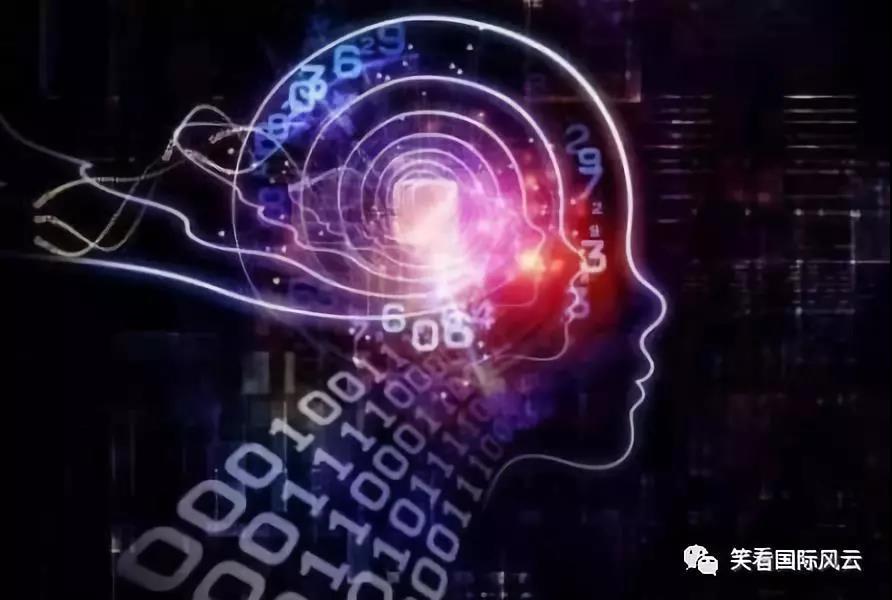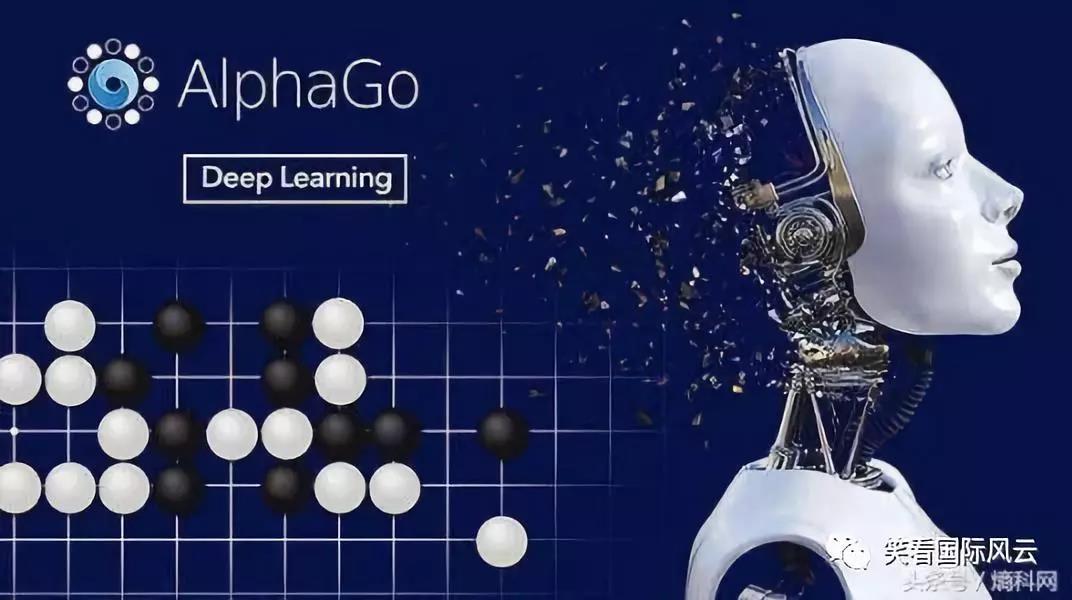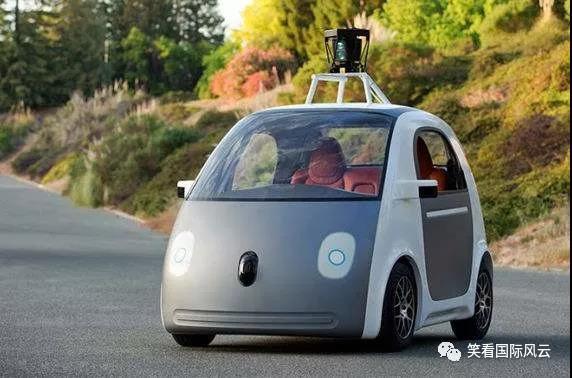How AI will change the future
Why is artificial intelligence so important? How can we carry out research and development and lay a solid foundation for the development of the next generation of artificial intelligence? How can we strengthen the integration of artificial intelligence and industrial development to provide new impetus for high-quality development? How can we strengthen the integration of artificial intelligence with the guarantee and improvement of people's livelihood, and promote the deep application of artificial intelligence in people's daily work, study, and life? (Forward)

Recently, the Political Bureau of the Central Committee of the Communist Party of China held its ninth collective study session on the current status and trends of artificial intelligence development. In presiding over the study session, General Secretary Xi Jinping emphasized that artificial intelligence is a strategic technology leading this round of technological revolution and industrial transformation, possessing a strong "leading goose" effect with significant spillover and driving capabilities. Accelerating the development of new-generation artificial intelligence is an important strategic lever for us to gain the initiative in global technological competition, and it is an important strategic resource for promoting China's technological leapfrog development, industrial optimization and upgrading, and overall improvement in productivity.
Why is artificial intelligence so important? How should research and development be carried out to solidify the foundation for the development of new-generation artificial intelligence? How can we strengthen the integration of artificial intelligence and industrial development to provide new impetus for high-quality development? How can we strengthen the connection between artificial intelligence and the guarantee and improvement of people's livelihoods, promoting the in-depth application of artificial intelligence in people's daily work, study, and life?
If the First Industrial Revolution, driven by steam technology, extended human limbs and expanded human strength, then the new round of technological revolution and industrial transformation driven by new-generation artificial intelligence technology will expand human intelligence, greatly enhancing the value that human intellect can create.
Currently, artificial intelligence is entering a period of explosive growth and reaping benefits. China should seize this opportunity, accelerate its artificial intelligence layout, reap the benefits of artificial intelligence, and strive to become a leader in artificial intelligence development.

AlphaGo defeating world-class Go masters, the official launch of AI writing robots... In recent years, artificial intelligence technology has frequently appeared, becoming a hot new global technology darling.
Countries around the world are actively deploying artificial intelligence: In May 2016, the United States established the Subcommittee on Machine Learning and Artificial Intelligence, specifically responsible for cross-departmental coordination of artificial intelligence research and development; the Japanese government and business community both regard artificial intelligence as one of the core technologies of the new round of technological revolution and industrial transformation, and have established a relatively complete research and development promotion mechanism at the national level; in March 2017, the French Ministry of Economy and Finance and the Ministry of Education and Research released the "Artificial Intelligence Strategy," aiming to integrate artificial intelligence into existing innovation strategies and measures, planning for future development...
China also attaches great importance to artificial intelligence. In 2017, the "Development Plan for New Generation Artificial Intelligence" and the "Three-Year Action Plan for Promoting the Development of New Generation Artificial Intelligence Industry (2018-2020)" were successively issued.
Why is artificial intelligence so popular? What impact will it have on future economic and social development? What does artificial intelligence mean for China?
A strategic technology
The driving force and impact on various industries are even more profound, possessing a "leading goose" effect.
After more than 60 years of development and accumulation, artificial intelligence has moved out of the laboratory and is profoundly changing human production and life.
"Over the past 10 years, aided by breakthroughs in algorithms represented by deep learning and the improvement of the information environment represented by big data, artificial intelligence has entered the practical stage, capable of more effectively solving various complex problems. It is closer to human intelligence than at any time in history, and even surpasses humans in certain aspects." said Huang Tiejun, director of the Department of Computer Science and Technology at Peking University.
Since the mid-18th century, three industrial revolutions have taken place successively, and now we are ushering in a new round of technological revolution and industrial transformation. If the First Industrial Revolution, driven by steam technology, extended human limbs and expanded human strength, then the new round of technological revolution and industrial transformation driven by new-generation artificial intelligence technology will expand human intelligence, greatly enhancing the value that human intellect can create.
"Artificial intelligence technology is a general-purpose technology applicable to all fields of human society. It is expected that the level of intelligence will continue to improve in the future, and its driving force and impact on various industries will be even more profound, which is unmatched by other technologies." said Huang Tiejun.
Artificial intelligence can give machines the ability to understand.
Based on traditional computing methods, machines can only process information according to pre-written programs. Once unforeseen situations arise, or if judgment needs to be combined with a large amount of context, the machine becomes powerless. Artificial intelligence can give machines a "brain" with the ability to understand, allowing machines to interpret the "semantics" contained in text and data, and to acquire judgment rules through self-learning.
In October of this year, in the SQuAD1.1, a top-level test of machine reading comprehension, the BERT model created by Google's artificial intelligence team surpassed humans in both measurement indicators, pushing forward the ability of machines to understand human language.
Artificial intelligence can give machines the ability to perceive.
Before the application of artificial intelligence, all machines lacked the ability to perceive, let alone communicate. Artificial intelligence has given machines vision, hearing, and touch, enabling them to perceive their surroundings and communicate with humans.
Artificial intelligence can give machines the ability to move autonomously.
Machines with autonomous movement capabilities can complete various tasks such as processing multiple perceptual information, decision-making, commanding moving parts, and interacting with the environment in a very short time.
Currently, autonomous vehicles are a hot spot for innovation in autonomous machines. Waymo has completed 12.87 million kilometers of road tests, and the launch of practical products is not far off; Baidu, in cooperation with FAW Hongqi, plans to launch a large number of L4-level autonomous vehicles for operation in 2020.
"Artificial intelligence, by empowering related traditional fields, enables significant technological innovation and product upgrades, with strong spillover and driving capabilities. It is a strategic technology with a "leading goose" effect." said Tan Tie Niu, an academician of the Chinese Academy of Sciences.

An important strategic resource
Promoting industrial optimization and upgrading, and overall improvement in productivity
The continuous development of new-generation artificial intelligence technology has led to its rapid and widespread acceptance by the industry, with applications in various sectors, injecting new and powerful impetus into economic and social development: A report released by consulting firm Accenture in September 2016 pointed out that by applying artificial intelligence technology, the annual economic growth rate of 12 developed countries, including the US, Japan, and the UK, could double by 2035; a research report released by McKinsey in 2018 indicated that by 2030, the newly added economic scale of artificial intelligence will reach US$13 trillion, and its contribution to global economic growth will be comparable to other transformative technologies such as the steam engine.
Artificial intelligence can create a new "virtual workforce," enabling more efficient completion of existing work.
Currently in China, "virtual workforces" have begun to replace many simple and repetitive tasks. Financial institutions, operators, banks, and e-commerce companies have all begun using virtual customer service to replace human customer service.
Artificial intelligence can improve the capabilities of existing labor and physical capital, achieving automation on a larger scale.
The model code of microwave ovens and the labels on the sides of refrigerators are the most labor-intensive parts of the production line for quality inspection. Now, however, Intel's artificial intelligence experts have invented a set of industrial visual inspection clouds that can easily complete this task, and at a speed far exceeding that of humans.
Artificial intelligence can also promote innovation, improve existing products and services, and even create entirely new products and services.
Taking the manufacturing industry as an example, artificial intelligence can capture and analyze data from all aspects of the manufacturing process, thereby improving production operations and making real-time control decisions.
In addition, the application of artificial intelligence in transportation, medical care, and other fields has greatly improved the accuracy of services, comprehensively enhanced the quality of life for the people, and made life more convenient.
Taking drug research and development as an example, in 2015, Atomwise, a Silicon Valley company in the United States, used artificial intelligence algorithms based on existing candidate drugs to successfully find two candidate drugs that can control the Ebola virus in less than a day.
Artificial intelligence technology provides China with an opportunity to overtake others on a curve. As a major manufacturing country, China's low-cost advantage has gradually disappeared in recent years, and the transformation and upgrading of the manufacturing industry is imminent.
“Making good use of new-generation artificial intelligence technology will be the key for enterprises to seize opportunities and accelerate development,” said Song Jiqiang, dean of Intel China Research Institute. “In this sense, artificial intelligence technology is indeed an important strategic resource for promoting China's technological leapfrog development, industrial optimization and upgrading, and overall productivity improvement.”
An important strategic lever
It is related to whether China can win the initiative in global technological competition, and China has the ability to become a leader in the development of artificial intelligence.
Currently, major developed countries around the world have regarded the development of artificial intelligence as a major strategy to enhance national competitiveness and safeguard national security. They are actively planning and strengthening deployment around core technologies, top talents, standards and regulations, and striving to gain dominance in the new round of international technological competition—
In October 2016, the US National Science and Technology Committee successively issued two important documents, "Preparing for the Future of Artificial Intelligence" and "National Artificial Intelligence Research and Development Strategic Plan," elevating artificial intelligence to the national strategic level;
In April 2018, the European Commission planned to invest US$24 billion in the field of artificial intelligence from 2018 to 2020;
In May 2018, France released the "French Artificial Intelligence Strategy," aiming to make France a strong country in artificial intelligence;
In June 2018, Japan's "Future Investment Strategy" focused on promoting the construction of the Internet of Things and the application of artificial intelligence;
In July 2018, the German Federal Government passed a document entitled "Key Points of the Federal Government's Artificial Intelligence Development Strategy," hoping to use this framework document to raise the country's research and development and application of artificial intelligence to the global advanced level...
Every technological revolution and industrial transformation in the past has driven the great development of the entire human society. However, the previous industrial revolutions all originated in Western countries and were innovated and led by them. Today, we are ushering in a new round of technological revolution and industrial transformation in the world. In the face of this major historical opportunity, we cannot miss it.
“If we cannot have a say in the field of artificial intelligence, we will not be able to leap forward to the high end of the global value chain in the future, and we will not have global influence,” said Liu Qingfeng, chairman of iFlytek.
Currently, in the field of artificial intelligence, China is generally able to keep pace with the development of advanced countries in the world, and it has the full ability to rank among the top: First, China has emerged a number of enterprises and research institutions with competitive strength, with a good development foundation; second, the massive data generated by the large population base is a prerequisite for "training" artificial intelligence systems; third, the wide range of industries also provides a broad market for artificial intelligence applications.
Experts point out that artificial intelligence is currently entering a period of explosive growth and dividends. China should seize the opportunity, accelerate the layout of artificial intelligence, reap the dividends of artificial intelligence, and strive to become a leader in the development of artificial intelligence.
Related News
Tel:+86-519-88856666
Fax:+86-519-85158666
Email:czhongda@czhongda.com.cn
Company Address: No. 220, Taishan Road, High-tech Zone, Changzhou, Jiangsu Province, China

Tiktok

Official Account
Copyright © Changzhou Hongda Intelligence Technology Co., Ltd.


